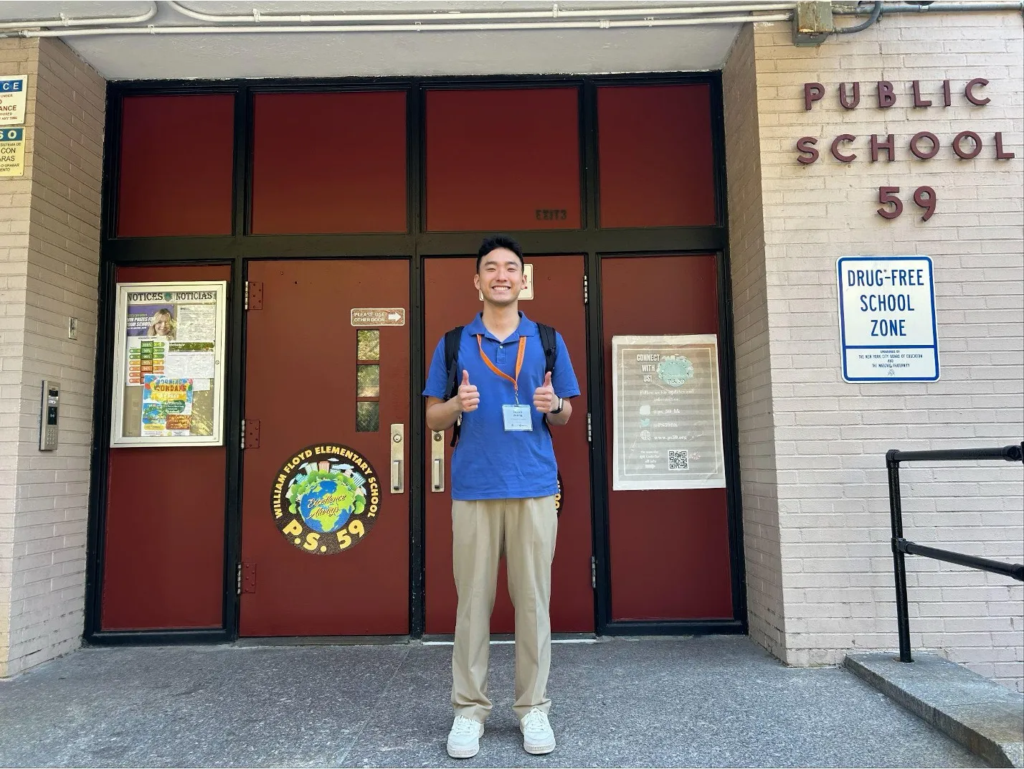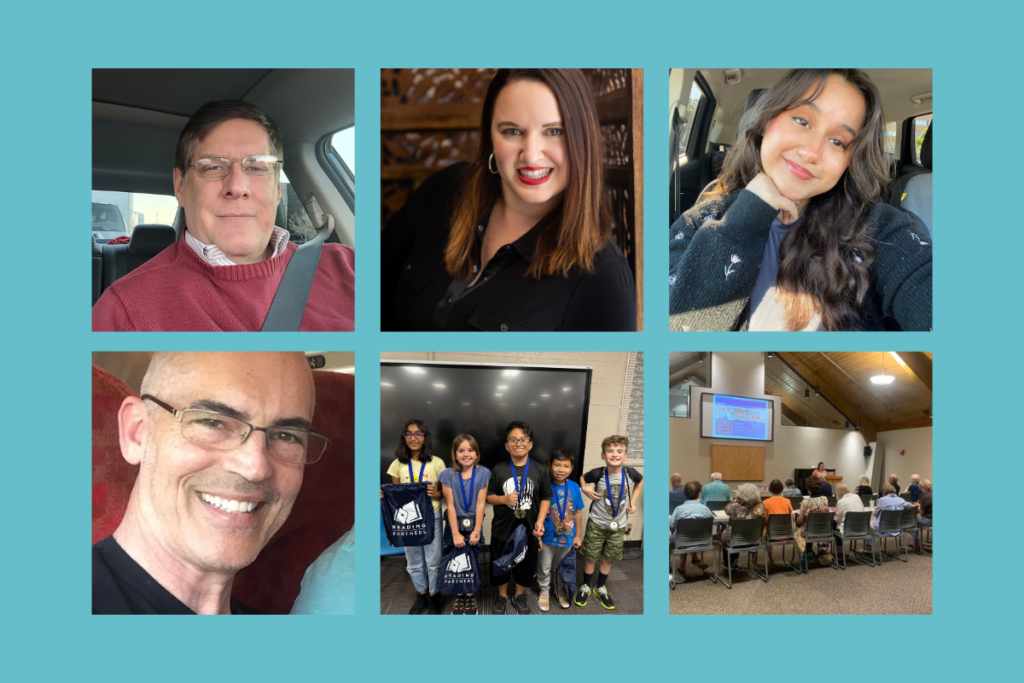Literacy program gives low-income students the skills to succeed
December 12, 2014
A program founded by volunteers at Belle Haven Elementary School in east Menlo Park provided on-on-one tutoring for Lucy Maldonado as a child, helping her to become a fluent English reader and book lover
Merury News / Wish Book 2014 / Richard Scheinin

As Google was being born in a Menlo Park garage in the 1990s, Lucia Maldonado — another child of Silicon Valley — was growing up in a nearby Spanish-speaking home. Upon entering kindergarten, she was mortified when her teacher pushed her to demonstrate her fledgling English skills in front of the class.
“I sat there in disbelief,” says Maldonado, now 22, remembering how isolated and ashamed she felt.
Everything was a mystery to her: identifying the letters, sounding out the words.
But two years later, in 1999, she was thrown a lifeline: YES Reading, a literacy program founded by volunteers at Belle Haven Elementary School in Menlo Park, where Maldonado was in the second grade. That one-on-one tutoring program, now known as Reading Partners, changed Maldonado’s life and has gone national. The nonprofit is widely cited as a model of effective literacy training for children from low-income families.
“I think this program is made for everybody,” says Maldonado, whose hardworking parents — mom Maria worked the night shift at Jack in the Box — assigned much of Lucia’s rearing to her Mexican immigrant grandparents. They spoke no English. Yet Maldonado, who credits Reading Partners for her transformation, became a fluent English reader and book lover, went on to spend six years as a volunteer tutor for the program and plans to become an elementary school teacher.
“I know what it’s like to be in that seat, where you’re from a background like mine and you’re working from ground zero and you feel intimidated,” she says. “But then you see the barriers go down. You may mess up here and there, but you can achieve the goal of being just like all the other friends around you, to be able to go to the library and get the same books that everybody else is reading.”
Reading Partners now operates in eight states, including California, where 9 out of every 10 fourth-graders from low-income families are reading below grade level. Unless something is done to help them step up to reading proficiency, they are four times less likely than proficient readers to graduate high school on time — complicating their chances at going to college, and increasing the likelihood that they will have run-ins with the law, studies show.
Reading Partners is doing something.
In Silicon Valley, where volunteers tutor more than 1,000 elementary school students in 24 schools, the program reports that 93 percent of participating students increased their monthly rates of literacy learning. It adds that 73 percent narrowed the gap between themselves and peers reading at grade level. Many principals report that participating children gain confidence in the classroom, and that their zest for learning ripples out to improve reading school-wide.
One recent afternoon, Maldonado and Meghan O’Hare, development manager for Reading Partners in Silicon Valley, drove to Atherton to visit the program’s reading center at Selby Lane Elementary School.
On the way, O’Hare explained some basics about the program: It is a “pullout” program for students whose skills need bolstering. Twice a week, they leave their regular classes to attend 45-minute, one-one-one tutoring sessions in the school’s dedicated Reading Partners center, a converted classroom. The tutors include college students and retirees, and are recruited from churches, tech companies and Rotary clubs.
“We really want the community to have an investment in children,” O’Hare said. “Our basic vision is that all students should have the reading skills they’ll need to succeed in school and in life.”
Selby’s reading center was softly buzzing with the sounds of five students engaging with their tutors.
Along the walls were a “Read Aloud Library” and a “Take Reading Home Library.” Neatly organized boxes were filled with detailed lesson plans, developed by the program for children at various reading levels across the country. Files were filled with “lesson roadmaps,” detailing each student’s three-times-a-year assessments and lesson-by-lesson progress, allowing tutors to step in at a moment’s notice.
“The machine is ready to go,” noted Rosie DuBrin, 24, the program’s site coordinator at Selby. Like other site coordinators, she serves with AmeriCorps, the Corporation for National and Community Service, which provides a portion of the program’s funding.
When Maldonado and O’Hare arrived, DuBrin was tutoring Omar, 8, a third-grader drawn to National Geographic books about volcanoes, snakes and sharks. In a previous session about bats, DuBrin said, “He mimicked how bats use echolocation by saying his name into a laminated article and listening for the sound of his voice to bounce back.”
This afternoon, Omar had chosen a book about sea turtles. An eager learner, he was reading aloud: “Sea turtle eggs are round and leathery.” He sounded out the word “rustling,” then, with some help from DuBrin, looked up its meaning in the dictionary and added the word to his “Wonder Words Journal.”
Omar read about the sea turtle’s life cycle: “first” the eggs hatch, “then” the turtle takes to the sea, and “finally” it reaches the end of its long life — and yet more turtles are being born, so that the cycle “starts all over again,” Omar shouted, reading from his text.
“Should I put an exclamation point on that?” DuBrin asked him.
“Yes,” Omar answered, “because it’s a happy ending!”
Maldonado was quietly watching all this, smiling at the third-grader’s enthusiasm.
“Reading Partners impacts a lot of lives,” she said. “It has more of an impact than just teaching you to get back to your grade level in reading.”
She should know, never having lost the confidence boost that the program gave her at age 7. It made her a student.
In May, she received her associate degree in child development from Cañada College in Redwood City. She also has received her Early Childhood Education Certificate, allowing her to work as a preschool substitute teacher. Now she’s applying to four-year bachelor’s programs and plans “to get my teaching credentials to teach in elementary school.
“I want to wake up every morning and be excited to go to work,” she said, “and that’s what you get when you work with kids. I love the interaction with kids and just how they’re always willing to learn, and how excited they get when they learn something new — just that glow in their face.”



